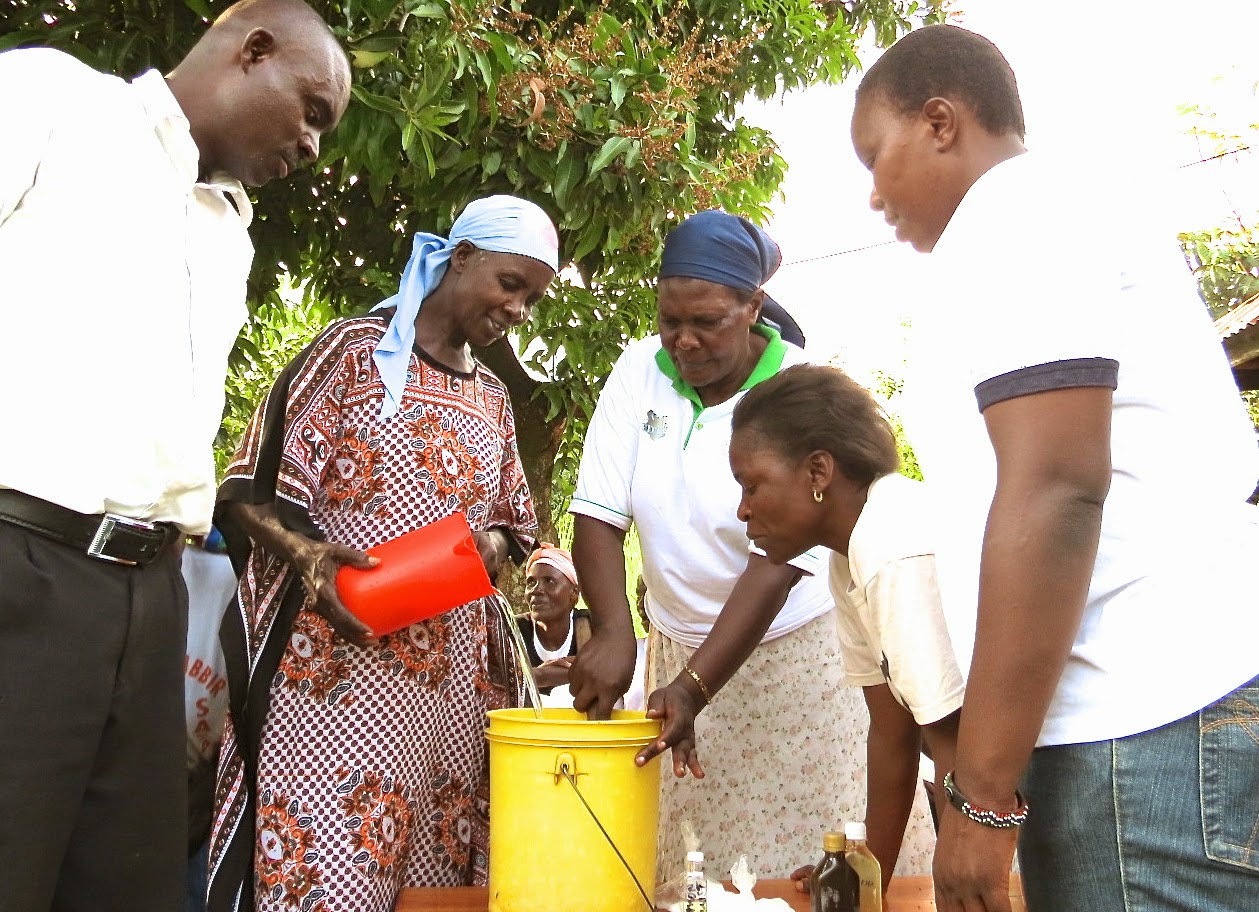With
his mother gone for 3 years and his father in a freshly dug grave, how would he
live?
The
question pierced George’s 13-year-old mind like a dull needle pushes in and out
of a shabby cloth, trying to mend a tear that ruined its usefulness. That’s how George’s life was becoming –
unfixable, useless. He constantly felt pricked by thoughts of abandonment
and rejection. No one claimed him. His
father’s older brother took advantage of him, selling off the land, claiming he
would use the money to pay George and his brother’s school fees. He didn’t.
Instead he threatened the boys with a machete, chasing them away from any
sympathy a villager might want to show.
George
was an orphan. So many orphans already
fighting for opportunity, for attention, for acceptance, for love, George
needed to find help.
By
avoiding his crazy uncle, George worked odd jobs, earning enough to pay school
fees. A few village mamas’ secretly help him. Afraid of the Uncle's wrath, they hid food in
the bushes for George and some collected shillings to buy him a pair of used
shoes. He survived, strengthened by the village mamas’ mercy and prayers.
Years
passed and now George is a man with a family of his own. He
works a full time job as a ground’s foreman at an orphanage. He attends night
school, studying to become an accountant. When the crazy uncle died, it was George who organized the funeral and
paid the bills.
God
heard the village mamas’ prayers and saw the acts of kindness they showed to
George. He has become proof that
compassion in Jesus name brings redemption.
Full
circle.
Today,
the mamas’ that aided George in his distress are old, some widowed, many caring
for orphaned children. They belong to the Kajulu Group – a collection of
beautifully real women who face hard lives with soft hearts. George connected us with them. It’s his way
of saying thanks for their provisions and prayers so many years ago.
Our
symbiotic relationship with these mamas offers sweet fellowship over roselle
tea, stewed kuku and millet ugali. Together we’ve learned to make liquid soap
for them to sell. We’ve found small
market for fireless cookers. We’ve
cleaned media to fill biosand water filters. We share God’s Word. To see George sitting with these mamas, laughing, talking, planning for the future... God's miracle.
This
hope-filled story of reciprocal care is not Kenya’s norm.
- For the average two million orphans, 9 out of 10 live in poverty and never complete their education.
- 40% of children age six to 16 are part of the work force.
- Women make up more than 50% of the population, but many are poor and illiterate. A large number are still affected by customary practiced that perpetuate oppression, especially among widows. Coping strategies for these mamas involves exploitive labor, including forced sex work.
Our goal is Kenya is to encourage mutual care in
the name of Jesus. The poor, namely
orphans and widows can thrive in their communities if three things continue to
happen:
1. Building biblical foundations for
family sustainability.
2. Teaching skills training coupled with
discipleship for healthy Christian living.
3. Praying for wisdom, mercy and grace in service
to one another.
Like Elijah and the widow of Zarephath (1 Kings
17:9 – 24), God offers us all opportunities for redemption.
Full circle.
How do you share your redemption story? Be sure to pass it on.
How do you share your redemption story? Be sure to pass it on.
asante sana for your prayers, support and encouragement,
hugs from the haugers
Ooo0o
hugs from the haugers
Ooo0o











No comments:
Post a Comment